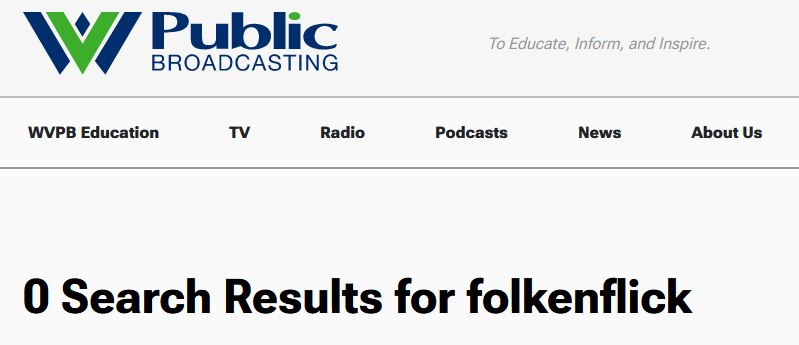By Chris Roberts
National Public Radio’s David Folkenflick reported today (Monday, Feb. 13, 2023) about politicians interfering with journalism at West Virginia Public Broadcasting. The organization last year dismissed a part-time reporter for several stories alleging that state-run facilities abused people with disabilities.
The reporting clearly angered politicians in the state, who claimed her work was inaccurate but West Virginia Public Broadcasting in December said stood up to scrutiny. Still, politicians pressured West Virginia Public Broadcasting executives to run off Amelia Ferrell Knisely, who was given no new assignments. She now works for the newspaper in Beckley, W.Va.
To be fair, some public broadcasters nationwide face pressure from politicians whose votes fund a portion of public broadcasting activities. About a third of West Virginia Public Broadcasting’s budget comes from the state. Politicians in the state have cut the organization’s funding, and want to cut even more.
Some politicians understand the need for vigorous reporting — even at taxpayer expense — and step aside. Others can’t handle it, so they stack the boards and fill executive offices with appointees who fear journalism.
Two points of ethical interest, both related to transparency:
►Note the many “no comments” in the story. (I counted at least eight, many from people on state payroll.)
►The story isn’t on the West Virginia Public Broadcasting website. As Folkenflick wrote:
On Jan. 25, [2023,] two days after NPR first approached Antolini about this story, West Virginia Public Broadcasting abruptly changed its website. It no longer links to any reporting from NPR News. Most member station sites do.
Folkenflick’s story mentions that West Virginia Public Broadcasting’s “about us” page says it has “has adopted the Public Media Code of Editorial Integrity, and follows the NPR Ethics Handbook and PBS ethics and standards, as laid out in the PBS Redbook.” His story notes those code’s concerns about conflicts of interest: “”Protect the editorial process from the fact and appearance of undue influence.”
We add another part from the NPR ethics handbook: Transparency, which begins: “To inspire confidence in our journalism, it is critical that we give the public the tools to evaluate our work.”

